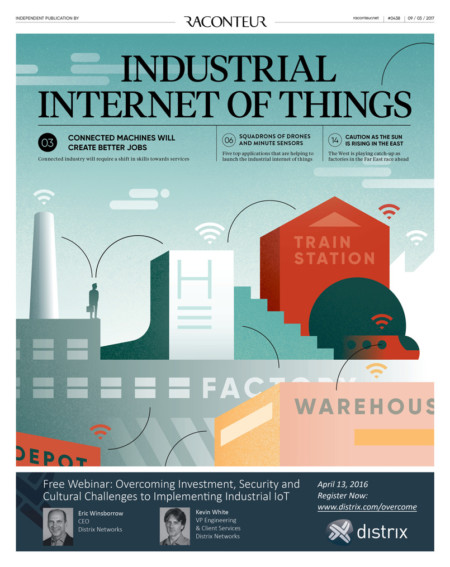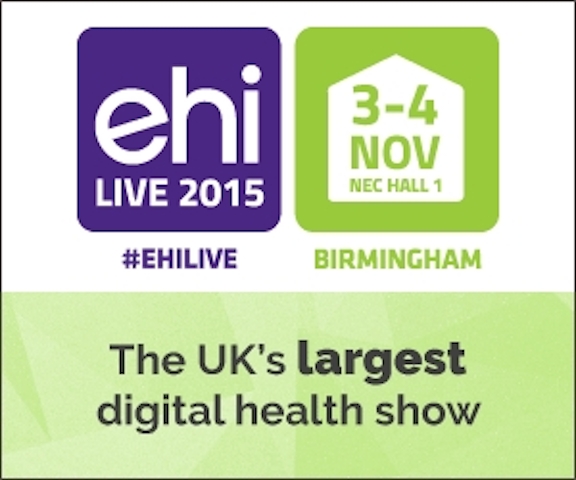 Best Buy generated a lot of positive press recently with its acquisition of GreatCall, which focuses on technology services for seniors. Its move into health may not be a surprise since it seems lots of retailers -- think Walmart or Kroger -- and many big tech companies -- think Apple or Amazon -- want into health, not to mention more tech startups than you can throw $100 million at. It's the why and the how about Best Buy's moves into health that deserve more scrutiny, and that healthcare organizations may learn from.
Best Buy generated a lot of positive press recently with its acquisition of GreatCall, which focuses on technology services for seniors. Its move into health may not be a surprise since it seems lots of retailers -- think Walmart or Kroger -- and many big tech companies -- think Apple or Amazon -- want into health, not to mention more tech startups than you can throw $100 million at. It's the why and the how about Best Buy's moves into health that deserve more scrutiny, and that healthcare organizations may learn from.
Wearables
See the following -
EHRs Can’t Keep Up with Healthcare Analytics Abilities, Needs
The electronic health record simply isn’t evolving quickly enough to keep up with rapid innovations in healthcare big data analytics and the increasingly complex needs of end-users, says an editorial published in the Journal of the American Medical Association (JAMA) this week. The opinion piece, authored by a trio of physicians and researchers from Stanford University, points out that existing clinical decision support features often border on the useless due to an overwhelming number of low-priority alarms and alerts, inadequate data visualizations, and an inability to capture socioeconomic and behavioral data within the clinical workflow...
- Login to post comments
10 of Today's Really Cool Network & IT Research Projects
University at Buffalo and Northeastern University researchers are developing hardware and software to enable underwater telecommunications to catch up with over-the-air networks. This advancement could be a boon for search-and-rescue operations, tsunami detection, environmental monitoring and more. Sound waves used underwater are just no match for the radio waves used in over-the-air communications, but the researchers are putting smart software-defined radio technology to work in combination with underwater acoustic modems...
- Login to post comments
A Look Inside the 'Blinky Flashy' World of Wearables and Open Hardware
 While looking at the this year's All Things Open event schedule, a talk on wearables and open hardware caught my eye: The world of the blinky flashy. Naturally, I dug deeper to learn what it was all about. Though Gina Likins and Jen Krieger of Red Hat would like to leave a few surprises for the lucky folks who attend their talk, they told me they can promise at least the following: ideas about how you can integrate simple circuitry into your outfits to "tron-ify" your wardrobe,
While looking at the this year's All Things Open event schedule, a talk on wearables and open hardware caught my eye: The world of the blinky flashy. Naturally, I dug deeper to learn what it was all about. Though Gina Likins and Jen Krieger of Red Hat would like to leave a few surprises for the lucky folks who attend their talk, they told me they can promise at least the following: ideas about how you can integrate simple circuitry into your outfits to "tron-ify" your wardrobe,
ways to add interactivity to art projects (or science projects! or exhibits!) that turn a spectator into a co-creator...
- Login to post comments
Amazon Digital Health Talent Grab: Box Exec Reportedly Joins Team
 Amazon is quietly building up its digital health tech talent, reportedly poaching a healthcare exec from Box. The Seattle behemoth may be best known for its retail business, but in the background it has a growing footprint in all manner of health technology areas. This latest Amazon talent grab appears to be another move to shore up those...
Amazon is quietly building up its digital health tech talent, reportedly poaching a healthcare exec from Box. The Seattle behemoth may be best known for its retail business, but in the background it has a growing footprint in all manner of health technology areas. This latest Amazon talent grab appears to be another move to shore up those...
- Login to post comments
Best Buy Buys Into Health
- Login to post comments
Can the Healthcare System Change Its Spots?
 Just a few years ago, things were looking up for the American health care system. We were going to start finding better ways to pay for care: call it pay-for-performance (P4P), value-based purchasing (VBP), or similar terms. We were going to nudge -- or, rather, push -- providers into more clinically integrated systems (e.g., ACOs) to help improve outcomes and to control costs. And, of course, with wider use of electronic health records (EHR), we'd be able to better coordinate care and make decisions based on actual data. It all sounded very promising. Now, though -- what's that old expression about the leopard not being able to change its spots?...
Just a few years ago, things were looking up for the American health care system. We were going to start finding better ways to pay for care: call it pay-for-performance (P4P), value-based purchasing (VBP), or similar terms. We were going to nudge -- or, rather, push -- providers into more clinically integrated systems (e.g., ACOs) to help improve outcomes and to control costs. And, of course, with wider use of electronic health records (EHR), we'd be able to better coordinate care and make decisions based on actual data. It all sounded very promising. Now, though -- what's that old expression about the leopard not being able to change its spots?...
- Login to post comments
Connected Tech Is Just the Thing for the NHS
 Healthcare systems all over the world are struggling with two fundamental concerns – how to afford the rising cost of delivering care and how to integrate ever-changing new technologies? These twin challenges are intrinsically connected, for emerging technologies offer the promise of making care more affordable as well as more effective. The rewards for successful implementation will be significant, for patients as well as for those responsible for the sustainability of healthcare systems. In healthcare, the internet of things (IoT) is changing the way we think about looking after people. At the heart of this technological revolution is a focus on connectivity. Drug discovery and greater understanding of disease are critical.
Healthcare systems all over the world are struggling with two fundamental concerns – how to afford the rising cost of delivering care and how to integrate ever-changing new technologies? These twin challenges are intrinsically connected, for emerging technologies offer the promise of making care more affordable as well as more effective. The rewards for successful implementation will be significant, for patients as well as for those responsible for the sustainability of healthcare systems. In healthcare, the internet of things (IoT) is changing the way we think about looking after people. At the heart of this technological revolution is a focus on connectivity. Drug discovery and greater understanding of disease are critical.
- Login to post comments
Data Breaches Through Wearables Put Target Squarely on IoT in 2017
Security needs to be baked into IoT devices for there to be any chance of halting a DDoS attack, according to security experts. Read More »
- Login to post comments
Data Crisis: Who Owns Your Medical Records?
 We’ve all encountered issues with our medical records. Whether getting a copy for a second opinion, finding major mistakes, or changing health care providers, our access to this important set of data has been fraught with difficulties. But that’s in the past tense—it’s getting worse. Sadly, your medical records are the property of hospitals, doctors, and health systems. Except in New Hampshire, where ownership rights are assigned to the patient, no other states recognize the individual’s right of control and ownership of their medical data...
We’ve all encountered issues with our medical records. Whether getting a copy for a second opinion, finding major mistakes, or changing health care providers, our access to this important set of data has been fraught with difficulties. But that’s in the past tense—it’s getting worse. Sadly, your medical records are the property of hospitals, doctors, and health systems. Except in New Hampshire, where ownership rights are assigned to the patient, no other states recognize the individual’s right of control and ownership of their medical data...
- Login to post comments
Digital Health Market Size to Grow at Over 25.9% CAGR to Reach $379bn by 2024: Global Market Insights Inc.
Digital Health Market size is estimated to exceed USD 379 billion by 2024; as per a new research report by Global Market Insights, Inc. Increasing demand for remote patient monitoring services, strong investment outlookand favorable government initiatives should drive global digital health market size. Emergence of healthcare IT coupled with growing penetration of smartphones, tablets and other mobile platforms have led to increased adoption of new business models. Digital technology has enabled people make smarter choices and receive products with value added services...
- Login to post comments
EHI Live UK Conference Hosts State–of-the-Art Open Source Health IT Solutions
 EHI live, now in its 8th year, is the UK's leading exhibition for digital health, hospital information and healthcare innovation. The event attracts visitors and delegates from around the UK and beyond who are keen to learn from industry leaders and examine new technologies. The EHI Live exhibition gives visitors the chance to see the best that NHS IT suppliers have to offer. EHI Live will take place in Birmingham, UK, Nov 3-4, in Hall 1 at the National Exhibition Centre, Birmingham. The event will host more than 250 exhibitors showcasing the latest advances in IT healthcare solutions. It will also feature free-to-attend conferences that will address the major healthcare IT industry issues such...[including] the annual HANDI Health Apps conference which features its own specialist app zone, a feature dedicated to the use of open source technology.
EHI live, now in its 8th year, is the UK's leading exhibition for digital health, hospital information and healthcare innovation. The event attracts visitors and delegates from around the UK and beyond who are keen to learn from industry leaders and examine new technologies. The EHI Live exhibition gives visitors the chance to see the best that NHS IT suppliers have to offer. EHI Live will take place in Birmingham, UK, Nov 3-4, in Hall 1 at the National Exhibition Centre, Birmingham. The event will host more than 250 exhibitors showcasing the latest advances in IT healthcare solutions. It will also feature free-to-attend conferences that will address the major healthcare IT industry issues such...[including] the annual HANDI Health Apps conference which features its own specialist app zone, a feature dedicated to the use of open source technology.
- Login to post comments
EHRs, IoT, Revenue Cycle Bring Opportunities for Healthcare APIs
 Application programming interfaces (APIs) are quickly becoming a critical tool for healthcare organizations looking to build interoperable connections, and it is likely that this new standard for health data exchange will keep growing in importance during the next few years. A new report from Market Research Engine (MRE) predicts healthy growth for the nascent healthcare API ecosystem, forecasting a 4 percent compound annual growth rate (CAGR) that will produce a $234 million market by 2024....
Application programming interfaces (APIs) are quickly becoming a critical tool for healthcare organizations looking to build interoperable connections, and it is likely that this new standard for health data exchange will keep growing in importance during the next few years. A new report from Market Research Engine (MRE) predicts healthy growth for the nascent healthcare API ecosystem, forecasting a 4 percent compound annual growth rate (CAGR) that will produce a $234 million market by 2024....
- Login to post comments
Halamka's Dispatch from HIMSS 2017
 As I wrote last week, I expected 2017 HIMSS to be filled with Wearables, Big Data, Social Networking concepts from other industries, Telemedicine, and Artificial Intelligence. I was not disappointed. 42,000 of my closest friends each walked an average of 5 miles per day through the Orlando Convention Center. One journalist told me “It’s overwhelming. You do your best to look professional and wear comfy shoes!” After 50 meetings, and 12 meals in 3 days, here’s my impression of the experience...
As I wrote last week, I expected 2017 HIMSS to be filled with Wearables, Big Data, Social Networking concepts from other industries, Telemedicine, and Artificial Intelligence. I was not disappointed. 42,000 of my closest friends each walked an average of 5 miles per day through the Orlando Convention Center. One journalist told me “It’s overwhelming. You do your best to look professional and wear comfy shoes!” After 50 meetings, and 12 meals in 3 days, here’s my impression of the experience...
- Login to post comments
Health Care's Kodak Moment
 For those of us of a certain age, a "Kodak moment" connotes a special event that should be captured by a photo, presumably on Kodak film. For younger generations, the term probably doesn't mean anything, because they don't know what Kodak is and have never seen film. That's why, for some, "Kodak moment" has come to suggest a turning point when big companies and even entire industries can become obsolete. Health care could soon be at such a point. Anthony Jenkins, a former CEO of Barclay's, recently warned that banks could face a Kodak moment soon...
For those of us of a certain age, a "Kodak moment" connotes a special event that should be captured by a photo, presumably on Kodak film. For younger generations, the term probably doesn't mean anything, because they don't know what Kodak is and have never seen film. That's why, for some, "Kodak moment" has come to suggest a turning point when big companies and even entire industries can become obsolete. Health care could soon be at such a point. Anthony Jenkins, a former CEO of Barclay's, recently warned that banks could face a Kodak moment soon...
- Login to post comments
Health Data Should Belong to Patients, Topol Argues
The digital revolution’s merging of medicine with high tech has unleashed massive amounts of data about the most intimate details of our life — what we ate, how far we walked, how fast our heart beat. As a result, what constitutes health data is no longer so easily defined. Neither is how the information is used. With rise of machine learning, those questions are becoming increasingly urgent, especially with the move of high tech companies into the clinical sphere, according to health data transparency advocate Dr. Eric Topol...
- Login to post comments